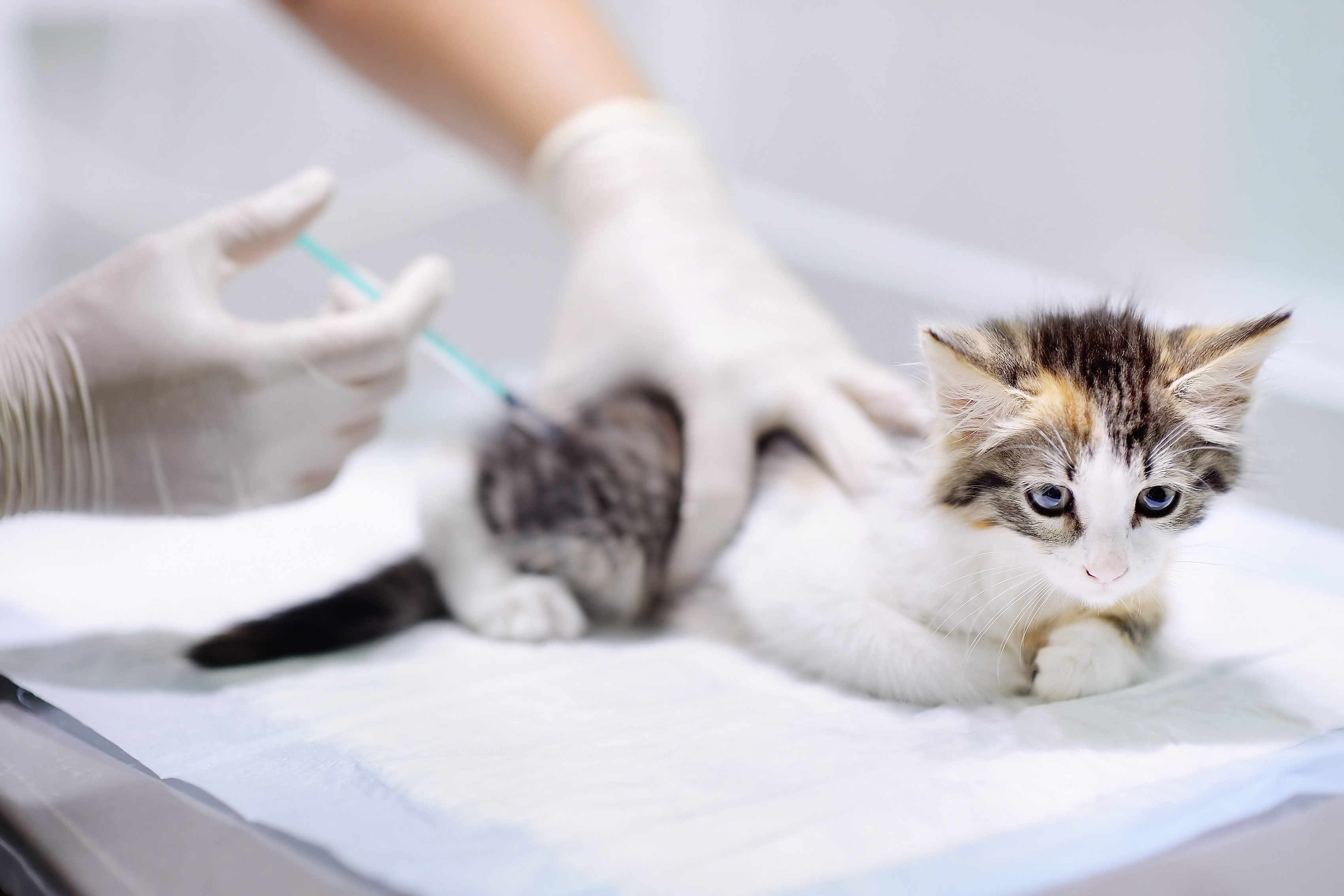Noncore Vaccines for Cats. Most states require annual rabies vaccines for cats and dogs until 2006.
 Rabies Vaccinations For Indoor Cats Friendship Hospital For Animals
Rabies Vaccinations For Indoor Cats Friendship Hospital For Animals
Recently however a non-adjuvanted three-year vaccine has been made available to veterinarians.

How often should cats get rabies shots. Some states require your pet to be vaccinated against rabies annually no matter if the vaccine is considered to be effective for one year or three. If your state requires yearly rabies shots you must vaccinate your cat once in a year. Dogs cats and ferrets.
Again for various health-related reasons your veterinarian may elect to use a 1-year vaccine. Persons should not begin vaccination unless animal develops clinical signs of rabies. Your veterinarian can advise you about vaccinations needed to.
When to give vaccines. The details of the vaccinations varies from state to state and often refers to the label of the specific vaccine used. This vaccine is only given once every three years after the initial one-year booster.
Currently the recommendation for indooroutdoor cats is to administer the FVRCP vaccine annually. This is the central question. Many vaccines can be given to pets as young as 6 weeks old so talk to your vet.
Cats and Rabies. Some vaccines are approved for a period of one year and others for three years. Cats heading into stressful situations such as boarding may benefit from a core vaccine booster 7-10 days before.
Kittens should start getting vaccinations when they are 6 to 8 weeks old until they are about 16 weeks old. Then they must be boostered a. There are different vaccines available that are licensed for use in dogs and cats.
Unknown escaped Consult public health officials. The cat vaccination schedule for rabies depends on the vaccine used but all of them begin no earlier than 12 weeks of age. That meant that starting at the age of 12 weeks a cat would need to receive the vaccine annually to ensure protection from the disease.
Studies have shown that most animals have immunity from the diseases they are vaccinated against for at least three years after their first booster. I therefore recommend that all cat owners diligently have their cats vaccinated with the so-called FVRCP at 6-8 weeks 10-12 weeks and 14-16 weeks. FVRCP Vaccine feline viral rhinotracheitis calicivirus and panleukopenia.
If a 3-year vaccine is administered your cat will need a rabies shot every 3 years thereafter. If your car has taken the first vaccine shot you have to repeat it within 12 months. Its difficult for pet parents to understand their cats vaccination schedulefrom which ones they need to how often.
Not only are there different schedules and needed vaccines for cats and kittens but there are also some extra vaccines for different lifestyles. Theres a booster in about one year after which it may be given annually or every three years depending on vaccine type. For example your vet may suggest certain non-core vaccinations if your cat or dog is outdoors only or boarded often.
On average a kitten can receive his first rabies shot as early as 8-12 weeks of age. Your veterinarian can provide you with a vaccination schedule for. Rabid or suspected rabid.
Cat vaccinations can get confusing. For indoor-only cats the recommendation is to administer the vaccine every three years. Booster shots are necessary for rabies vaccines.
When should kittens get shots. In 2014 61 of rabid domestic animals tested were cats. For information as to what the laws in your state require do a search online talk to your veterinarian or to your local animal control.
Healthy and available for 10 day observation. Your veterinarian will know the legal requirements of your state and will help you to stay on schedule with your pets. We recommend doing the puppy and kitten series and a booster vaccine in one year and then every three years for the majority of core vaccines or possibly only rabies for indoor-only animals.
